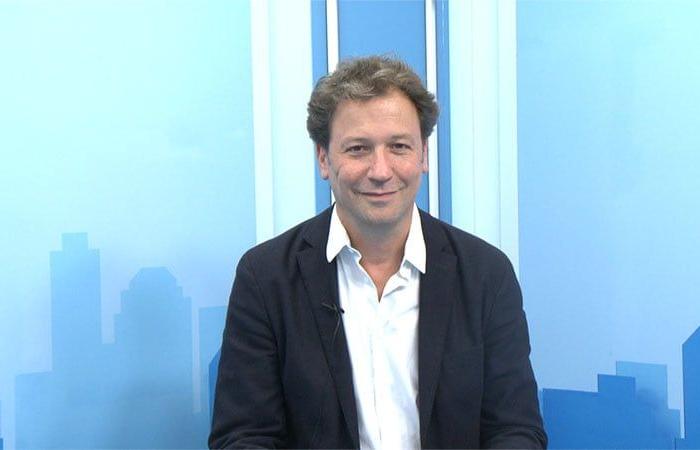The French IMHOTEP study and the NICHE 2 & 3 trials “confirm the efficacy of immunotherapy in the neoadjuvant setting in non-metastatic colon cancer,” indicates the Dr. Julien Taieb (HEGP) which comments on studies presented at ESMO 2024 in colorectal cancer. The Swiss SAKK study, testing aspirin postoperatively after adjuvant chemotherapy, also attracted attention.
TRANSCRIPTION
Hello everyone, welcome to Medscape live from ESMO 2024 in Barcelona. Today I’m going to talk about the oral session on colorectal cancer, which focused heavily on non-metastatic disease with presentations of three pilot therapeutic trials testing neoadjuvant immunotherapy in the 10% to 15% of patients with non-metastatic cancer who are MSI/dMMR (MicroSatellite Instability/ deficient MisMatch Repair).
NICHE 2: 100% of patients without recurrence at 3 years
The first study that was presented is NICHE 2. [1] It is already well known, it was published in the New England Journal of Medicine this year. This study, presented by Myriam Chalabi, shows the results of DFS (Disease-free survival) at three years – until then, we had histological response rates, but we did not have the survival and survival without recurrence of the disease – which were therefore presented during this congress; and they are impressive, since at three years, 100% of patients are without recurrence, all patients seem not to relapse after treatment with ipilimumab and nivolumab, just a few weeks before surgery.
NICHE 3: 65% histological responses
A second study, NICHE 3, [2] was presented without the long-term results, but with the complete histological response results, which are as good as in NICHE 2 – around 65% with major responses in more than 90% of cases. This NICHE 3 study tested not ipilimumab and nivolumab, but relatlimab, which is an anti-LAG 3, with nivolumab, so another double combination of checkpoint blockers in these non-metastatic MSI patients.
IMHOTEP: pembrolizumab monotherapy in non-metastatic MSI tumors
The third study was presented by Christelle de la Fouchardière – it is the French IMHOTEP study, which looked at all non-metastatic MSI tumors, not just colorectal ones. And it is the colorectal cohort that was presented with 72 patients. [3] This time, it was pembrolizumab monotherapy, one or two injections only preoperatively, a brief treatment and in monotherapy which allows to reach 46% of complete histological response when one cycle is done and 68% – that is to say as in the double immunotherapies – when two cycles are done.
These three studies confirm the major efficacy of immunotherapy in the neoadjuvant setting in non-metastatic colon cancer and open the door to these treatments for these 15% of patients in the future, knowing that it will be very difficult to carry out a randomized trial, that we will have to see how we can, with the regulatory agencies, manage to get these drugs onto the market without large randomized phase 3 trials ― the results being so good that in my opinion no patient will agree to be randomized into the chemotherapy arm, if we did a classic randomized study.
SAKK: Aspirin in postoperative period after adjuvant chemotherapy
We also had, during this same session, the presentation of a trial that asked a very old question, which already existed when I was an intern, and which is that of aspirin. You know that anti-inflammatories and aspirin would play an antitumor role in colorectal cancer and that adding a little aspirin for a few years after surgery could change the survival of patients. Many studies have tackled this subject. Unfortunately, most of them have not concluded, have not finished. And then we had, a few years ago, a publication of the New England Journal of Medicine which showed that only patients with an activating PI3K mutation could, in fact, be those who would respond to adjuvant therapy of the type aspirin low dose for several years after surgery.
This study is called SAKK 41/13. The Swiss academic group that conducted it tested aspirin postoperatively after adjuvant chemotherapy, regardless of the adjuvant chemotherapy, and then compared it to an arm without aspirin with placebo. A similar study – ASPIK – was conducted in France. It closed because it did not include patients quickly enough. The SAKK study also closed prematurely, but they presented their results, because there will be no more mature ones.
I think, to say it right away, that in the future it will be the meta-analysis of these different studies dedicated to mutated PI3K that will be able to solve the problem. In any case, in the study presented this morning, there was no significant difference, probably due to lack of power, but, all the same, recurrence-free survival and overall survival were better in patients treated with aspirin; aspirin can also, moreover, prevent certain cardiovascular and neurological disorders, and has its own efficacy with very low toxicity and a very low cost. And this very low cost is important, because we also had, this year, the publication in the Journal of Clinical Oncology from the American part of the IDEA study which tested the question of new NSAIDs, celecoxib, which is a bit the same idea, but with a more expensive and slightly more toxic drug, and which therefore also showed, in the mutated PI3Ks, in a subgroup analysis, that there seemed to be a benefit from these NSAIDs.
So, for the future, I would rather opt for aspirin than for other NSAIDs, and we will wait for the meta-analyses to try to definitively answer this question which dates back several decades.
Thank you for your attention and I wish you a successful ESMO Congress.
Sign up for the newsletters from Medscape : select your choices
Follow Medscape in French on X(twitter ) , Facebook And Linkedin






